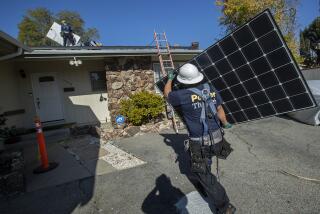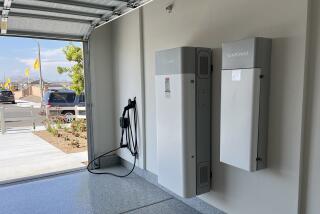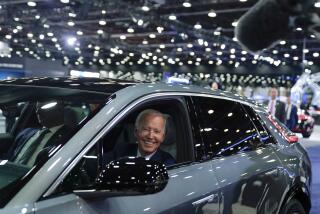The Hot and Cold Truth
- Share via
One easy way for Americans to stretch their supplies of energy is to buy a better toaster, or air conditioner or refrigerator. They will be assured of that opportunity if Congress approves the National Appliance Energy Efficiency Act of 1987 now being debated in the Senate.
Congress passed a similar bill unanimously last fall, but President Reagan vetoed it. The Administration argued that the free market should be permitted to work its will and that mandatory minimum efficiency standards would force up the price of appliances. This is saying in effect that if Americans want to buy shoddy, energy-wasting appliances, that is their right.
But it is not necessarily true that appliances will cost more if manufacturers are required to make them more efficient. The industry is supporting the legislation because it then would have only one set of standards to meet. In the absence of federal standards the states have imposed their own, with California in the forefront of that movement. Now manufacturers say that it will be more costly to make appliances that meet the varying standards in the separate states.
Home appliances gobble up nearly one-fourth of all electricity consumed in the United States, some of it generated by burning oil. The new standards would reduce this figure by an estimated 6% by the year 2000, saving consumers on their electricity bills in the process. It is not a matter of a free market versus a regulated market, the industry says, but one of a reduction in the regulatory burden that the firms now face.
The cheapest and most available energy that Americans can find anywhere is that saved through conservation--a fact that this Administration has refused to acknowledge since the day it took office. If the President doesn’t see the light this time, he should feel the heat--or at least a quick veto override.
More to Read
Inside the business of entertainment
The Wide Shot brings you news, analysis and insights on everything from streaming wars to production — and what it all means for the future.
You may occasionally receive promotional content from the Los Angeles Times.










